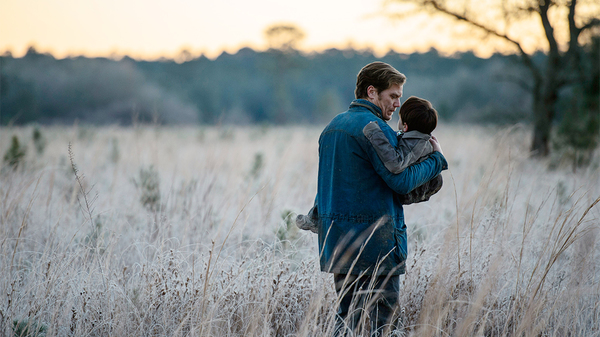A recent trend in American independent films is becoming more, and more apparent: they love the genre films of the eighties. Film makers like Adam Wingard (You’re Next, The Guest), James DeMonaco (The Purge trilogy), and David Robert Mitchell (It Follows), are indebted to horror masters John Carpenter, and Wes Craven. Jeff Nichols has gone one better. The Arkansas-born filmmaker, whose first three films: Shotgun Stories, Take Shelter, and Mud are all intimate masterpieces of Southern living, with tinges of fantasy, and paranoia, has gathered a deserved reputation as one of America’s brightest new talents. Midnight Special, his first proper genre piece, should solidify this reputation and have bigger studios come calling. Nichols wears his influences on his sleeve for his fourth feature. There is the droning electronic beats of a John Carpenter soundtrack, there’s the lean filmmaking of the Halloween director, and a quality of hope that is more Spielberg that his contemporaries but without the schmaltz.
At its core, Midnight Special is about a fathers love for his son. Except this son has special abilities and has been raised in the very doomsday cult that his father was expelled from. The father, Roy, is played/lived by Michael Shannon (who starred in both Shotgun Stories, and Take Shelter), who along with his old friend Lucas, the always dependable Joel Egerton, go on the run from the cult, and the FBI. The chemistry between Roy, and his son Alton, played by Jaeden Lieberher, is what powers the film. Roy’s fierce need to protect his remarkable son lead to split second decisions, and a lot of improvising. 
Nichols film is a lesson in restraint. Filmed on a tiny budget, Midnight Special’s big ideas are grounded in the mundane. Our three leads travel by night in a succession of beaten up cars, their dialogue is short and gruff, merely suggesting greater mysteries, and when the film calls for it, the effects are sparse and well-conceived, only hinting at the massive power contained within Alton. The cast are an embarrassment of riches: Shannon and Egerton are dogged yet still have a sense of steely control, Kirsten Dunst is quietly effective as Alton’s mother in a role that would fall flat with a lesser actress. On the other side of the line we have Sam Shepard (another of Nichols frequent collaborators) as the cult leader, and Adam Driver who’s brilliant in a role that is purely expositional. Nichols’ direction is excellent, using a little to achieve a lot. In his night-time scenes he can make approaching school buses seem like malevolent beings, and the manifestation of Alton’s powers is brought to life by a simple effect that looks extraordinary in the seemingly normal circumstances.
There is a neat motif that Nichols uses to sum up Alton’s place in the story: he reads superhero comics by flashlight, most X-Men, and Superman, highlighting his own outsider status as something grander than human. This can also be used to describe Nichols, as he is something much grander than a genre director.







